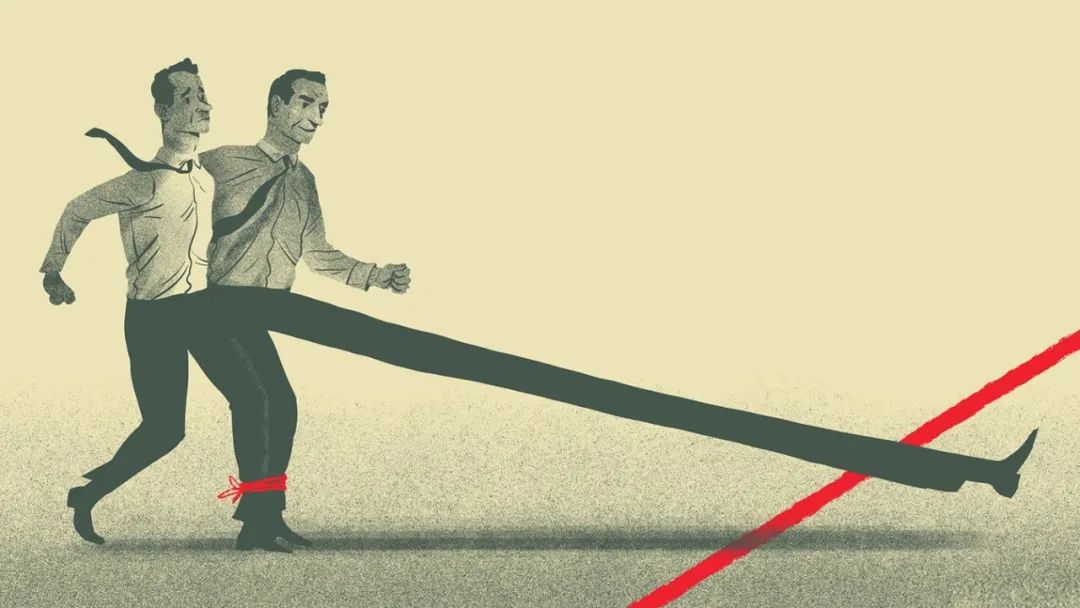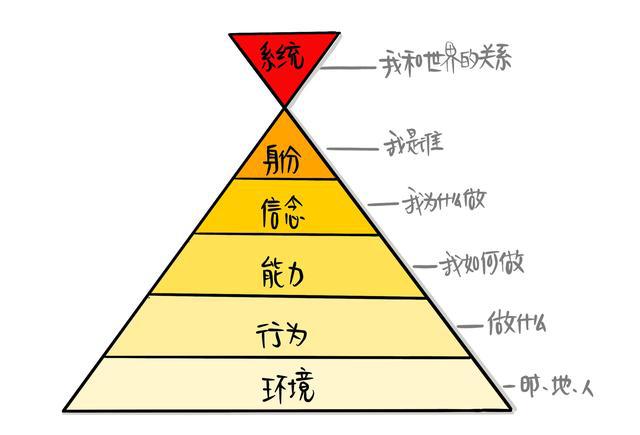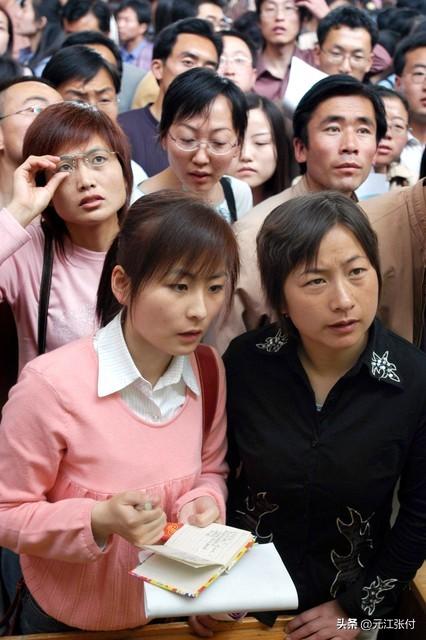
背景介绍:
职场的关系常常是剪不断理还乱,不比校园中同学关系,可以闹闹别扭笑笑就和好,在职场往往不是那么令人乐观,甚至满是尔虞我诈、战场打仗般的紧张气氛。毕竟同事的关系多了一些利益的因素,是一种竞争合作的关系。竞争与合作并不是敌对关系,竞争离不开合作职场经济学是什么,因为有合作才能优势互补,有竞争才能取长补短。
When yourcolleagues are also your rivals
当你的同事也是你的竞争对手
How managersshould balance competition and co-operation
管理者应该如何平衡竞争与合作
The modern company exalts both competition andco-operation. Competition is the defining feature of markets; insideorganisations, too, employees compete for limited resources.
现代公司既推崇竞争也推崇合作。竞争是市场的本质特征;在企业内部职场经济学是什么,员工也在争夺有限的资源。
Sometimes that contest is obvious, as when performance is openly ranked or there is a race for a specific job. Sometimes it is left unspoken: there is only so much money to go round and only so many promotion opportunities on offer. Either way, competition is always there.
有时候,竞争是显而易见的,比如公开对业绩进行排名,或者角逐某个职位。有时候竞争又是心照不宣的:可供分配的钱只有这么多,摆在那里的晋升机会也只有这么多。无论显性还是隐性,竞争一直都在。
Yet the reason firms exist is to co-ordinate theactivities of many actors in pursuit of common goals. Departments and teams areexpected to work together. Collaborative behaviour is usually celebrated.Companies dole out awards for the most helpful co-workers, not the Macbethprize for the colleague most likely to murder you in your sleep.
但是,公司之所以存在就是为了协调众多参与者的行动以追求共同的目标。部门和团队都是要通力合作的。协作行为通常会得到赞美。公司会给最乐于协作的员工颁奖,而不会向最有可能趁你睡着时向你捅刀子的同事颁发“麦克白奖”。
Rivalry and teamwork can go together nicely. A paperpublished in 2022 by Eric VanEpps of the University of Utah, Einav Hart ofGeorge Mason University and Maurice Schweitzer of the University ofPennsylvania looked at the best way to handle an old conundrum.
同事竞争和团队合作可以并行不悖。犹他大学的埃里克·万尼普斯、乔治梅森大学的埃纳夫·哈特以及宾夕法尼亚大学的莫里斯·施魏策尔在2022年发表了一篇论文,探讨了一个老大难问题的最佳解决之道。
To make a good impression on the higher-ups, you need to highlight your own achievements. But bragging about how great you are is not a recipe for being liked. A strategy of taking the credit for some things and doling out praise to colleagues for others resolved this problem.
为了给上司们留下好印象,你需要突显自己的成就。但自吹自擂并不能让别人喜欢你。解决办法是可以把一些成绩归功于自己,同时不吝把同事赞美一番。
It is not easy for managers to strike the right balancebetween encouraging contests and collaboration. (You just need to hear the word“co-opetition” to know how ugly things can get.) Competition can spur moreeffort but it can also have unintended consequences.
对于管理者来说,在鼓励竞争和合作之间取得适当的平衡并非易事。(你只需要听到“竞合"这个怪词,就知道事情会变得多麻烦。)竞争可以激励人们更加努力,但也可能带来意想不到的后果。
A recent study by Eddy Cardinaels of Tilburg Universityand Christoph Feichter of the Vienna University of Economics and Business askedsupervisors to use a forced performance-ranking system to assess workers’creativity.
荷兰的蒂尔堡大学的埃迪·卡迪纳尔斯和维也纳经济大学的克里斯托夫·费希特近期的一项研究让主管使用强制绩效排名法来评估员工的创造力。
Forced rankings require managers to assign employees to given places on a scale: if there are ten workers, say, then one must come top and one must come tenth. This approach just stressed everyone out—a bit like bellowing “relax” in someone’s face. People tried harder but they also became less creative.
强制排名要求管理者按照一定比例给每位员工排位:比如,如果有十名员工,那么必须有一人排在第一名,有一人排在第十名。这种方法只会让每个人都压力爆棚——有点像冲着某人大吼“放松”。人们是比以前更努力了,但同时创造力也下降了。
In a literature review published in 2020 Gavin Kilduffof the Stern School of Business at New York University, Blythe Rosikiewicz ofWest Chester University and Christopher To of Rutgers University concluded thatcompetition is more likely to backfire when people feel threatened: forexample, when the costs of losing are high or when people are competing againstothers known to be better at the task in question. But even when the stakes arelow, explicit competition can backfire.
在2020年发表的一篇文献综述中,纽约大学斯特恩商学院的加文·基尔达夫、西切斯特大学的布莱思·罗西凯维奇以及罗格斯大学的陶家页得出结论,当人们感到威胁时,竞争更可能产生适得其反的后果:例如,当失败的代价很高,或者明知竞争对手比自己更擅长这项任务时。但即使风险不高,赤裸裸的竞争也可能带来反效果。
In an experiment conducted by Jeffrey Carpenter ofMiddlebury College and his co-authors in 2007, participants were asked to stuffenvelopes. When people were paid a bonus for stuffing the most envelopes, theyworked harder than if they got a flat per-envelope fee.
2007年,美国明德学院的杰弗里·卡彭特及其合著者做了一个实验,让参与者往信封里装东西。当装完的信封数量最多的人能获得一笔额外的奖金时,人们工作起来会比每装一个信封得到一笔固定报酬时更努力。
But when they were also given a chance tosabotagetheir peers to get ahead, the (correct) expectation that they themselves would be sabotaged made people work less hard than if they had got piece-rate pay.
但是,如果他们还有机会给同事使绊子而让自己领先时,他们会想到自己也会被别人使绊子(也确实如此),这让他们的工作积极性比拿计件工资时更低。
All of which argues for a restrained approach toencouraging competition. Balance individual incentives with group ones. If youare going to rate performance, make sure the measures are clear, objective andfair.
所有这些都表明,鼓励竞争要适度。要平衡个人动机和团队目标。如果要对员工表现做评估,要确保评价标准清晰、客观和公平。
Think about when risk-taking is more desirable (sales, say) and less desirable (clinical trials). By their nature organisations crackle with competitiveness. Adding a bit of fuel to the fire can be fine. Spraying petrol everywhere is unnecessary.
要考虑什么时候比较值得冒险(比如销售)、什么时候不值得(比如临床试验)。企业的根本性质决定了它燃烧着竞争之火。往火里加点燃料可能还行,到处浇汽油就没必要了。
(红色标注词为重难点词汇)
重难点词汇:
in pursuit of 追求;追逐
conundrum [kəˈnəndrəm] n. 复杂难题;谜语
sabotage [ˈsæbətɑːʒ] v. 阴谋破坏;蓄意破坏







